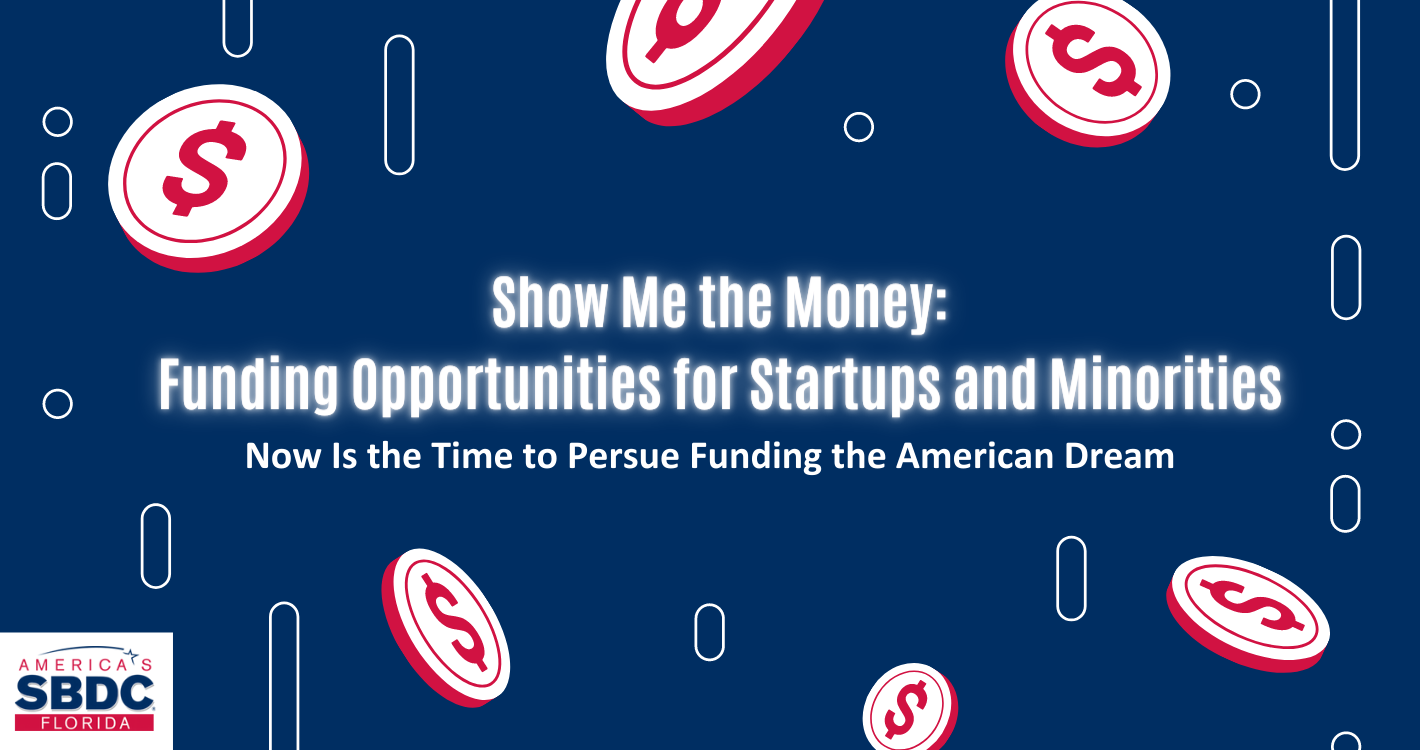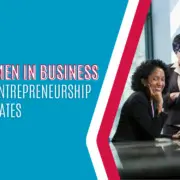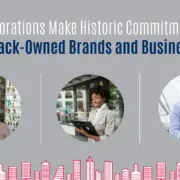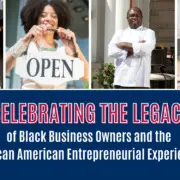Show Me the Money: Funding Opportunities for Startups and Minorities Now Is the Time to Persue Funding the American Dream
by Yolanda Goodloe | January 19, 2022
For the last few years, the world has been in a constant state of chaos. First, it was political upheaval, then racial unrest, and now a major health crisis. We’ve become almost used to the tumult, to the extent that we barely bat an eye when a new catastrophe springs up.
It was John Milton who first said, “every cloud has a silver lining.” Luckily for us, this holds true even during these dark times in Black History. The political upheaval has gotten more people interested in the state of affairs of the nation. Racial unrest gave birth to the Black Lives Matter Movement and the current climate of diversity and inclusion. The pandemic and its subsequent lockdown(s) have reawakened a desire for work/life balance amongst employees, giving rise to the Great Resignation.
Change is in the air, that much is clear. With the current push towards diversity and inclusion, many institutions have risen to provide resources for minorities in areas where they were traditionally marginalized. One area that has seen an influx of opportunities is entrepreneurship.
When it comes to creating and sustaining a business, securing capital has often been one of the biggest challenges for Black entrepreneurs. A fallout of the racial unrest in the last few years has been the exposure of funding disparities for minority-owned small businesses. This has resulted in an increase in funding opportunities in non-traditional lending, grants, banking institutions, and market funding platforms.
Non-traditional Lending Platforms
Traditional brick and mortar banks have an outdated and cumbersome lending process, with regulations that are not favorable to small businesses, particularly black-owned businesses. Startups are essentially disqualified from obtaining financing through these financial institutions because a five-year profile is usually required before an offer will be extended.
Non-traditional lending platforms provide micro loans and fund business start-ups. They also have easier qualifications than banking institutions. These platforms are viable alternatives for small business owners because they have lower credit requirements.
Traditional banks usually decline loans to borrowers with credit scores below a 600 – 650 threshold. In addition, many minority entrepreneurs do not meet some of the additional requirements for loan approval by traditional banks. A recent study revealed that 31 percent of Black applicants were asked to provide their personal W-2 forms during the bank’s lending process, while no white applicants received such a request.
Another advantage of non-traditional lending platforms is that they have a faster approval process. With some non-traditional business loans, you may gain access to the needed funding within a week. If you are interested in learning more about this financing option, here are some non-traditional lending platforms for you to consider:
- Community Development Finance Institutions (CDFI) – With CDFIs, you do not need as much collateral as a financial institution would require.
- Venture Capitalists (VC) – VCs take part ownership of the company for capital. This is a good option for companies or startups that don’t have any collateral for a loan. The percentages of ownership to capital are negotiable.
- Partner Financing – Another organization within your industry provides funds for special access to your product, staff, distribution rights, ultimate sale, or a combination of those. The partner company is usually a larger business, perhaps in a similar or complementing industry.
Bank Lending
Though banks have long engaged in practices that have marginalized minority business owners, some have been moving towards a more inclusive process. Banks are becoming more intentional about supporting minority businesses. An example of this effort is Citi who has pledged $1.15 billion to close the racial wealth gap with strategic initiatives that aim to expand banking and access to credit in communities of color and invest in black entrepreneurship. This includes $350 million in procurement opportunities for Black-owned business suppliers and $50 million in additional impact investing capital for Black entrepreneurs.
Union Bank is another example of a financial institution that has committed to supporting underserved communities through its Business Diversity Lending program. This program is designed to help women, minority, and veteran-owned businesses by providing the credit and financing the businesses need to grow and thrive.
Locally, Raymond James Financial, Regions Bank, First Home Bank, and PNC have all created outreach programs to increase lending and improve opportunities for minority owned firms. In 2021, PNC Foundation announced a $16.8 million grant to support and develop Black-Owned businesses through the Howard University Center for Entrepreneurship, and last year First Home Bank Reached its goal of lending $50 Million to Minority-Owned Business . These banks have all increased their commitments to addressing the financial challenges facing minority-owned small businesses and combating the inequalities that exist in the lending world.
Grants
For the first time in decades, grants are another funding opportunity for small businesses granted by the federal, state, and local government, as well as private entities like corporations and foundations. The only catch is it can take time and effort to research and apply for this type of funding. If you are interested in learning more about this funding option, below are some bank lending and grant opportunities:
- Union Bank – Business Diversity Lending Program
- Business For All – Offers a total of 18 grants comprising $285,000 to Business for All applicants. Thirteen of those grants will be awarded to businesses led by women, people of color, LGBTQ+ entrepreneurs, military-connected business owners, and entrepreneurs with disabilities.
- The Small Business Innovation Research (SBIR) and Small Business Technology Transfer (SBTT) powered by the Small Business Administration. Currently, entrepreneurs of color, women, and people with disabilities are all being encouraged to apply.
Market Funding Platforms
Market funding platforms are available for minority-owned businesses and start-up firms. Examples include crowdfunding platforms which allow businesses to pool small investments from different investors instead of having a single investment source.
Peer-to-Peer (P2P) lending platforms are another example where borrowers to lenders are introduced through various websites. This form of lending is a hybrid of crowdfunding and marketplace lending. It gives people with just a little working capital to give loans to other people – peers.
- Lending Club & Prosper are two of the most notable P2P lending platforms in the U.S.
- iFundWomen – A crowdfunding platform for women-owned businesses. They also have a program for women of color, offer access to grants, business coaching, and more.
The time has never been better for black entrepreneurs to take their business from conception to reality. If you’ve always dreamed of being a business owner but felt you did not have the funds to finance it, the opportunity is now available to make those dreams come true.
However, you need to recognize that this period in time is a unique one in that oppression and unrest are giving way to positive change. As such, these funding opportunities will not always be available. Now is not the time to sit and wait for your dreams. This special climate and business opportunity may only be here for a season.









Yolanda Goodloe
Consultants, Cowart, Government Contracting Consultants, PinellasFlorida PTAC at Pinellas County Economic Development
Specialty: Procurement
Yolanda Goodloe has more than 20 years of experience in public service at the local and municipal levels. Early in her career, she worked as a human resources and relations professional while serving as a liaison to the business community and advocacy groups. Her prior experience includes being a human relations specialist for Lee County Government, and an equal opportunity director for the City of Fort Lauderdale. Her background combines public service and human relations experience with hands on leadership in equal opportunity, supplier diversity, business certifications programs, organizational training and development, and managing workforce diversity principles. Goodloe is the procurement specialist for the Florida PTAC at Pinellas County Economic Development. She connects businesses to resources and tools for state, local, and federal contracting opportunities. She is a Certified Procurement Professional (CPP), a Supply Chain Management Professional (SCMP), and a Certified Verification Counselor. She graduated from Florida State University with a bachelor of arts in political science and history.